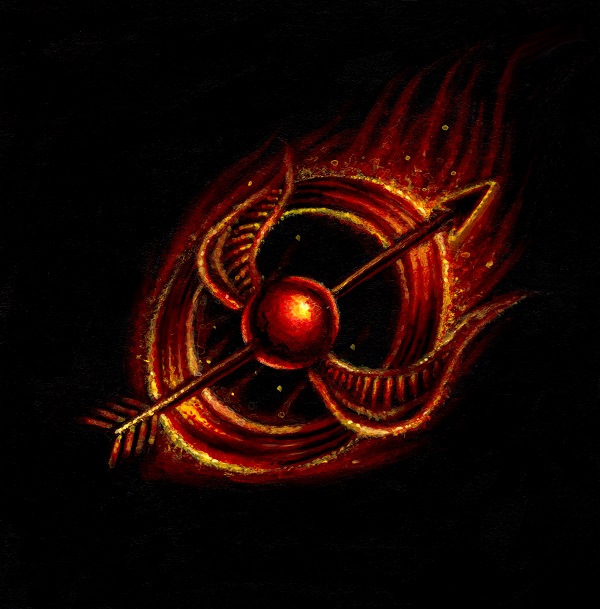Dystopian Fiction Heats Up
Illustrated by Dimitri Panos
With the Harry Potter era on the decline, and the Twilight craze hitting a plateau, dystopian fiction is coming back, and hitting hard. With the recent release of the final installment in the Hunger Games series by Suzanne Collins, readers of all ages are thirsty for more tales of a more pessimistic nature. But why?
Dystopia, literally meaning“bad place” is defined as a society, usually set in the future, that has succumbed to the flaws of human nature and now exists in a corrupt state. Citizens in these societies are often depicted as being oppressed in some way, or lacking in certain human rights. These societies are often associated with pessimism and a general undertone of negativity with the writer’s goal being prevention of society’s downfall.
 So why do teens—and their parents—seek to drown themselves in such despair?
So why do teens—and their parents—seek to drown themselves in such despair?
The reason is that we live in such a safe society presently. This generation has grown up knowing nothing but security and they’ve grown numb to fear since the scariest thing around our middle class, central american neighborhoods is the monsters under the bed. But when a novel like the Hunger Games presents the idea that the future may not be so great for us, society takes a double take and becomes enthralled in this possibility. Stories like this give us a window into the kind of adventure that we’ve never known, but very well might experience if the course of society fails to change. The Hunger Games series may be the most prominent dystopian series, but it’s certainly not the only one carrying on this most recent boom in dystopian fiction. Some other titles include the Uglies, by Scott Westerfield, and the Maze Runner by James Dashner. The list goes on.
And if you’re into the classics, Ray Bradbury’s Farenheit 451, and Lord of the Flies by William Golding are a good place to start to get in on the dystopian mania.
If any Individual finds himself locked up in the safety of society, along with it’s obvious path to destruction, and wonders how the world might look one day if the world continues on this track, the latest dystopian fiction, especially the Hunger Games, promises to open him up to a world of possibilities—and mostly unpleasant ones, to say the least.

Comments
aaron
November 30, 2011Although I have yet to read the Hunger Games series, this article has peaked my interest. I would have to agree with your conclusion on why these tales are so popular. I think this analysis could even be broadened to look at the horror, sci-fi genres, or fantasy instead of simply dystopian fiction. I think that even though these stories are becoming more and more available, that the fear, even if subconscious, of such events is what leads to this over protective society. In my opinion, these novels are the only escape possible when living in a protective society that seems to be heading towards one of these novels.
Erika M.
December 6, 2011I have always enjoyed reading dystopian fiction. From reading Lois Lowry’s The Giver to reading Margaret Atwood’s The Year of the Flood, I have found something very appealing about the dystopian genre. This article peaked my interest, and I completely agree that dystopian fiction is “heating up”! It has definitely become a very popular genre in the past years, and I think that you are right when you say this is because we like to imagine a scarier world than the one we live in. I agree that the safe society we live in contributes to our desire for more thrill and danger. At the same time, dystopian fiction can seem almost too possible, and this makes us think about where we are headed. There is a thrill in reading these books. I have heard a lot about The Hunger Games, and though I still haven’t read these books, I am drawn to the idea. This article just makes me want to start reading them even more!
Strikeout
December 19, 2011I have loved dystopian fiction ever since I read Animal Farm and A Brave New World in Grade 8. I always liked the way the book seemed to be a “warning” to the reader. Like in Oryx and Crake by Margaret Atwood, movies, video games and even the porn industry has gone over the top to show, in a way, how desensitized people are becoming. And the desensitization affects the people within a society. Like the other two above me, I have never read the Hunger Games, but I would like to start. I want to see want modern dystopian fiction has become today.
You have to be registered and logged in in order to post comments!